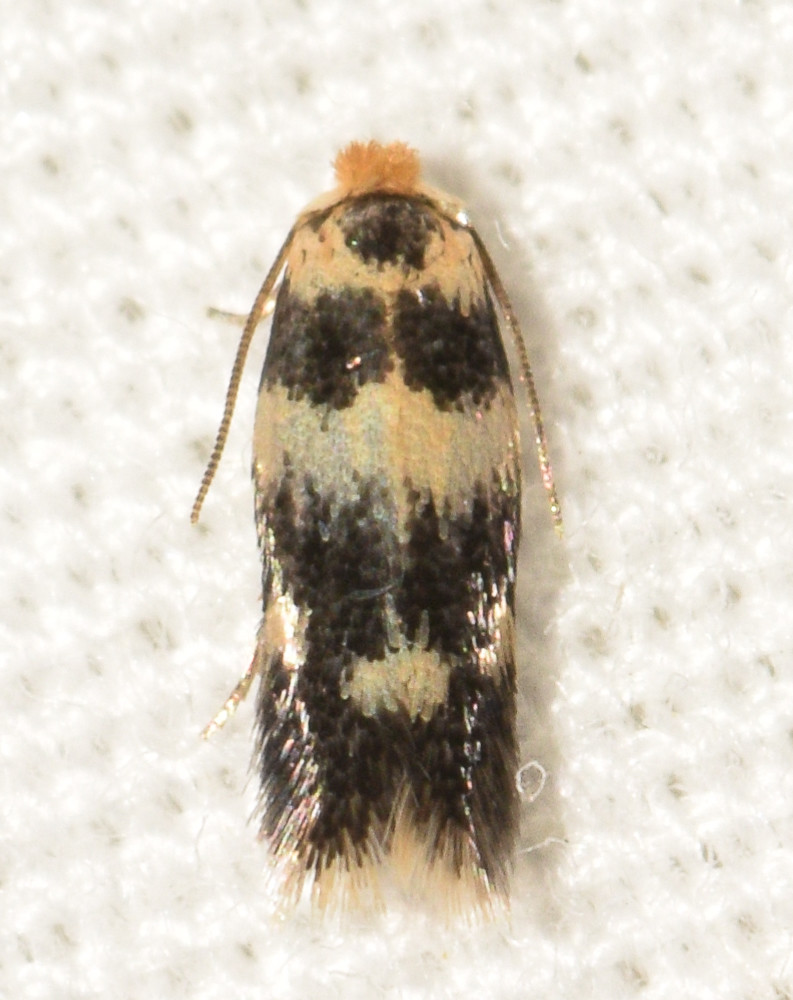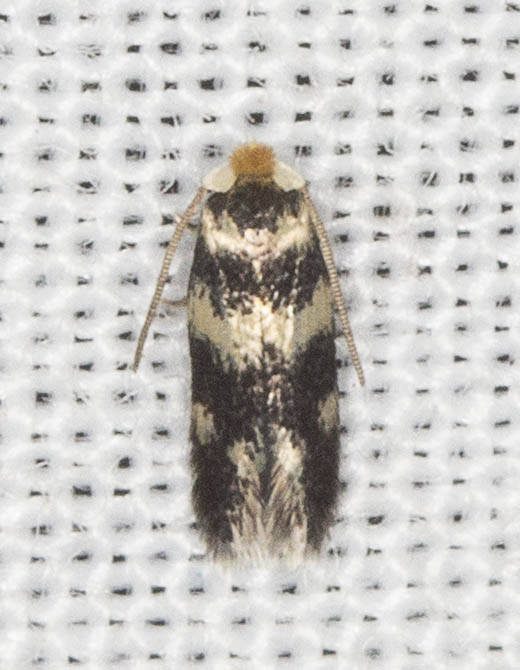Map Snapshot




3 Records
Status
This 4-mm micromoth is native to Europe, which is also the original home of its host plant, Norway Maple (Acer platanoides). As the tree became established in North America, so did E. sericopeza. The tiny larvae feed in the samara of the maple, eating a tunnel from the samara wing to the seed.
Relationships
Host plant is Norway Maple (invasive).
Seasonality Snapshot
Source: Wikipedia
| Ectoedemia sericopeza | |
|---|---|

| |
| Scientific classification | |
| Domain: | Eukaryota |
| Kingdom: | Animalia |
| Phylum: | Arthropoda |
| Class: | Insecta |
| Order: | Lepidoptera |
| Family: | Nepticulidae |
| Genus: | Ectoedemia |
| Species: | E. sericopeza
|
| Binomial name | |
| Ectoedemia sericopeza (Zeller, 1839)
| |
| Synonyms | |
|
List
| |
Ectoedemia sericopeza, the Norway maple seedminer, is a moth of the family Nepticulidae, found in Europe and North America. It was described by the German entomologist, Philipp Christoph Zeller in 1839.
Description
[edit]The wingspan is 6–9 mm. Edward Meyrick gives this description: Head ferruginous-orange, collar ochreous-whitish. Antennal eyecaps ochreous-whitish. Forewings blackish; a basal spot, a bent fascia before middle, a tornal spot, and opposite costal spot yellow-whitish. Hindwings grey.[1] The moths fly in May and August.[2]
The larvae feed on Norway maple (Acer platanoides).[3]
Distribution
[edit]It is found from Fennoscandinavia to the Pyrenees, Italy, and Greece and from Great Britain to Russia and Ukraine. It is also present in North America, where it has been recorded from Delaware, Massachusetts, Ontario and Quebec.
References
[edit]- ^ Meyrick, E., 1895 A Handbook of British Lepidoptera MacMillan, London pdf
 This article incorporates text from this source, which is in the public domain. Keys and description
This article incorporates text from this source, which is in the public domain. Keys and description
- ^ Kimber, Ian. "Etainia sericopeza (Zeller, 1839)". UKmoths. Retrieved 14 March 2023.
- ^ Ellis, W N. "Etainia sericopeza (Zeller, 1839) norway-maple pigmy". Plant Parasites of Europe. Retrieved 14 March 2023.
External links
[edit]


